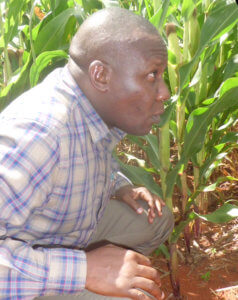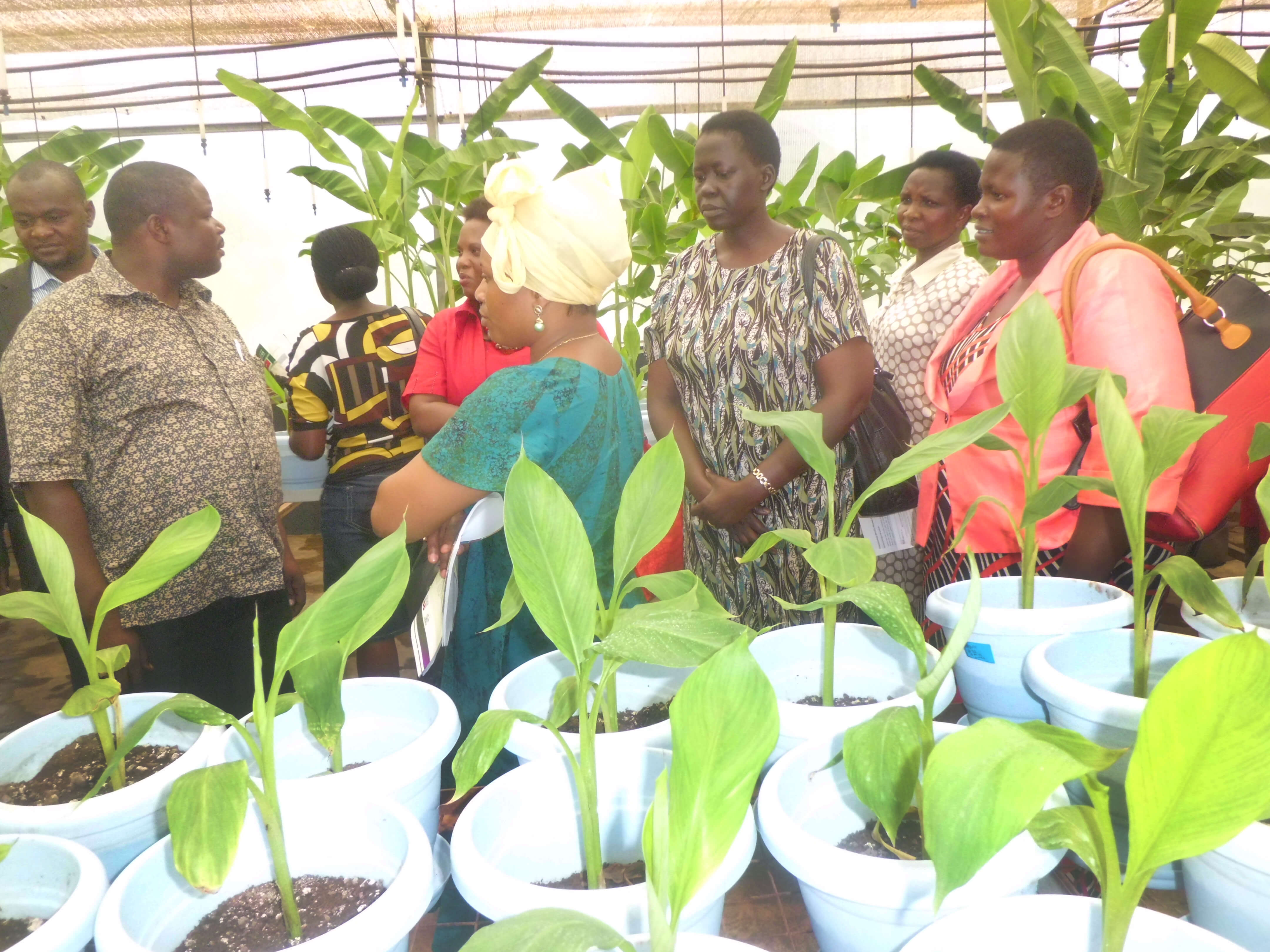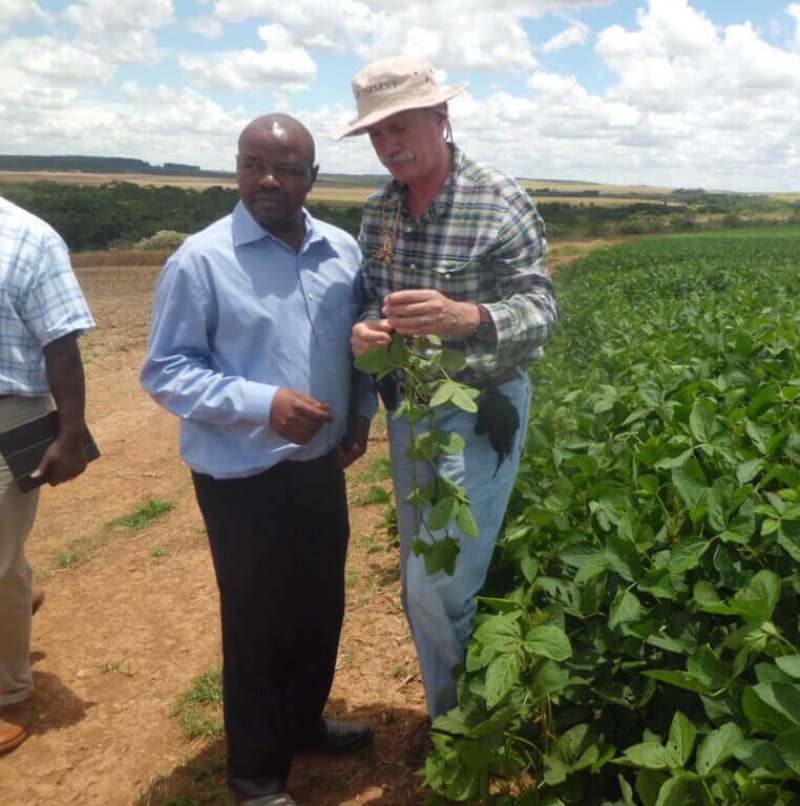Tell me something about yourself and how you became the chairperson of the Sectoral Committee on Science and Technology?
When I became Member of Parliament in 2011, I was one of the few scientists by then and leadership to chair committees was given based on loyalty to the government party and Mr. Samson Obua was the chairperson of the committee and I became his deputy because I was an independent legislator with no party by then.
However, later there was a concern that each committee must be chaired basing on qualifications in the concerned area. I became the chairperson of the committee in the 10th parliament in 2016.
Since you are an engineer by profession, how did you get the interest of spearheading matters concerning application of modern biotechnology?
When we assumed leadership of the committee in 2011, we found a very dormant committee of science and technology and we thought of making it vibrant by attracting the attention of the media. We thought of raising a controversial issue which the media is particular about.
We discovered Uganda had the 2008 biosafety policy in place. Later in 2012 we realized there was draft bill on biotechnology and biosafety which had not been presented before the flow of Parliament.
This was a government draft bill and the responsible ministry of finance then was not willing to present it. To provoke the government, we moved a motion to present a private members bill. Our motion was moved successfully causing the then Minister of Finance, Mathia Kasaijja to present the bill in the flow of Parliament after one weeks’ time.
It was referred to my committee and that is how I got engaged in spearheading issues concerning the science of biotechnology.
I started engaging scientists, politicians and farmers in different constituencies and that is when fellow politicians began questioning what are GMO’s.
This attracted a lot of media coverage and I was named a GMO activist being paid lump sum amounts of dollars by Monsanto.

I became curious to know what Monsanto actually does. In 2013, a team of 10 people from the committee were sponsored by Uganda’s Parliament to visit research facilities in St. Louis and Missouri in US where we managed to learn from the research centers.
During my next trip to Washington, DC to attend a conference where scientists where discussing matters concerning GMO’s, I met a scientist working for Monsanto and engaged him in a discussion asking him if Monsanto would be interested in Uganda’s GMO products which were in development. His response was that Uganda is a negligible market for Monsanto. I was so disappointed.
With all these accusations against you how have you managed to persist in handling the debate about the bill and why the back and forth challenge in making sure the bill becomes a law?
As a scientist, I do understand what Uganda can benefit in terms of economic gain if the government embraces scientific innovations be it in the area of health, environment and agriculture including breeding GMO products. By becoming a member of Parliament I took an oath to serve the people of Uganda, therefore no one will intimidate me to pursue the bill.
In October 2017, parliament passed the bill and when the president received it he failed to sign it and in January it was sent back to the committee to make a few clarifications including changing the title to GMO and Biosafety bill.
Later a group of people who called themselves young scientists with influence from non governmental organizations (NGO’s) such as Advocates Coalition for Development and Environment (ACODE), Caritas Uganda and Action Aid called me for a meeting with the First Lady Janet Museveni prior to MPs passing the bill.
I agreed to meet her and I went with the Minister of Science, Technology and Innovations Elyoda Tumwesigye accompanied by two senior scientists engaged in GMO research at Naro.
To my surprise the first lady was with a group of the so-called young scientists and legislators who are anti-GMO activists.
The first lady put my team under intimidation asking us to listen to her side but I insisted that the scientists sensitize her briefly about application of modern biotechnology usage for crop breeding. She did listen to the scientists and when the minister tried to defend the science behind GMO’s she intimidated him and the minster kept quiet most of the time during the meeting.
I have been intimidated by fellow legislators with some telling me they have finished my career as a politician but I am not shaken.
I am aware that the returning of the bill back to the floor of Parliament is not the making of the president but rather ant GMO activists some of whom are close relatives of the first lady.
Give me specifics of how anti-GMO activists operate in the country and how they intimidate you politicians who are in support of the bill?
The anti-GMO activists are few in number and are being used by NGOs who receive funding from bigger organizations based in Europe who send funding for developmental work in rural areas, but the Ugandan based NGOs divert part of the funding to oppose Biotechnology application.
They organize sensitization meetings for our members of Parliament where each legislator is given $100 as facilitation fee to attend one hour meeting.
One particular scientist from Uganda’s Makerere University is being used to oppose the technology amongst rural farmers.
In 2014, the group went to my constituency in a bid to try and confuse my farmers but because members of my constituency have trust in me, they tasked them to ensure I am present.
I chaired a meeting in which the members raised so many negative things including accusation against legislators receiving $30 million each from Monsanto, which was not true. Luckily, I recorded everything and this particular scientist was directed to come to the committee and explain his accusations. We caused for his arrest by police attached to Parliament but because he apologized and acknowledged his lies we excused him.
It is important to make sure farmers from our constituencies are taken to the research institutes to see how biotechnology is applied to breed GMO crops right from the laboratories to the field trials. I have done this to my farmers and they can no longer be deceived.
Do you believe there is grassroots opposition to GMO’ or is it being created by outsiders
The rural communities in Uganda especially farmers are looking for seed which can give them good yield, seedlings which are resistant to pests and diseases, tolerant to drought, it is therefore difficult to convince them not to embrace such a technology.
I think you are aware of a farmer in Masaka who collapsed and died because her banana plantation was ravaged by banana bacterial wilt diseases, do you expect descendants of this farmer to ignore GMO banana suckers which are disease free?

Given the scenario that the anti-GMO activists cause scare tactics to politicians who are elite people, how do they do the same to small-scale famers in the rural areas?
The approach to farmers differs because these people organize sensitization meetings where they use pictorial presentation. In most cases the presenter is the soil scientists called Dr. Giregon Olupot from department of soil science Makerere University.
He gives farmers wrong information showing pictures of banana bunches weighing over 500 kg. He presents pictures of rats dying by consuming GMO dry rations, maize cobs where human babies are growing and cassava tuber with the head of a pig.
He voices to them that scientists use gene from a pig which is inserted in cassava, banana and maize in order to come up with GMO product. This scares the Muslim community who are opposed to consuming pork.
At one moment the anti-GMO people came with three people from UK under the disguise of being journalists. They came to me and asked me a question “are you aware that Europe banned GMO’s to create market for Africa’s organic agricultural produce” I challenged them and asked how come Europe is the biggest importer of GM products for human consumption and animal feed in the entire world. They were left in a shock and admitted the truth.
With this kind of opposing force about application of modern biotechnology in the agriculture sector are you sure farmers will adopt the technology?
Adoptability of the technology will be an uphill task due to the fear created in people. But my advice is that once the technology is rolled out, it is important for commercial farmers to adopt it and small scale farmers will see its advantage and embrace the same.
What will happen if the law is frustrated by anti-GMO activists?
We shall be at disadvantage because neighboring countries such as Ethiopia and Kenya who are about to commercialize GMO cotton will import their products into the country in processed form.
But on the other hand this will make the government wake up because the people will know eating of GMO food does not cause death, they will go ahead to get seed from neighbors across the border and start planting GMO crops. This has happened in West Africa between farmers in Burkina Faso and Ghana causing the latter to pass its biosafety law so fast.
A group of anti-GMO activities organized a press conference in Parliament recently vowing to block passage of the bill, claiming that the GMO bill would ‘transfer control’ of Uganda agriculture to ‘multinationals.’ “Instead of developing our seeds, they are developing the white man’s seed,” said legislator Nambeshe Jon Baptist, who argues there is a conspiracy among corporations, foreign countries and the world media. “The objective is to make sure that GMOS are popularized in this country. The media is also targeted to spread the merits of this technology,” he said. What do have to say about this?
This are ignorant people including former Minister of Ethics Nsaba Butoro, who misrepresented that control of farming would be turned over to multinationals. “We will have no authority over the seeds they want to introduce here,” he said. “What kind of man are you who gives the responsibility to feed your family to another man.” He accused the supporters of the bill to be ‘blinded by money.’ But the bill has already been passed by Uganda’s members of Parliament. What was contentious was the president’s query about seven clauses, including the title. We have resolved them and presented our report before parliament.
Rule of procedure 1(4) of Uganda’s Parliament is very clear that if the president fails to sign a particular bill, the committee responsible looks at the queries and makes a report which is sent to the president. If he still fails to sign the bill, then the speaker of Parliament has the mandate to pronounce it as passed law. This time it will be in the form of the previous clauses minus any amendment.
Nsaba Butoro’s comments are not substantiated, and he has ever accused the committee members of pocketing $2 million from Monsanto. He is talking from uninformed point of view; forget about him.
Lominda Afedraru is a freelance science journalist in Uganda who specializes in agriculture, health, environment, climate change and marine science. Follow her on the Daily Monitor web site www.monitor.co.ug, Facebook or Twitter @lominda25.































